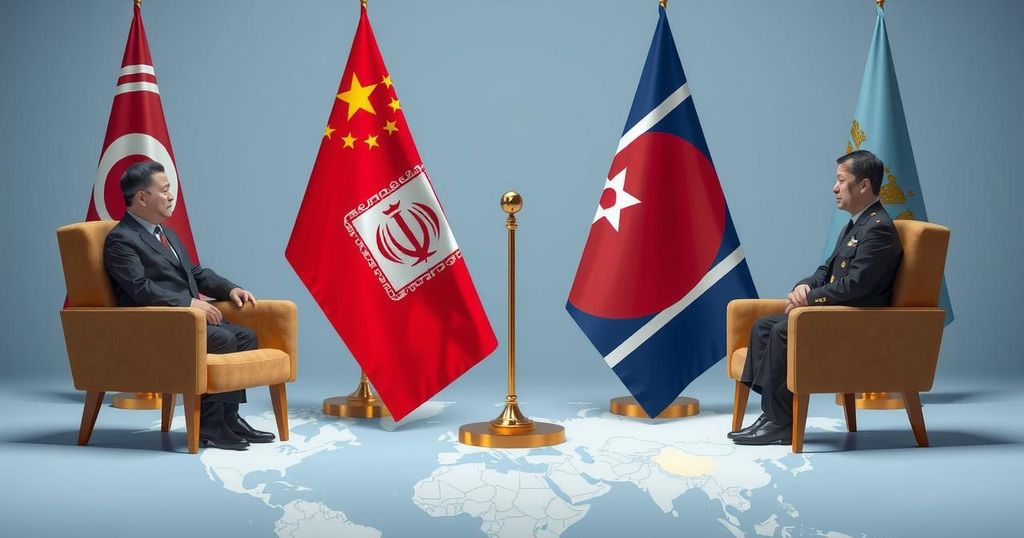President Biden has approved a national security memorandum to guide the incoming administration in addressing the alliances of China, Iran, North Korea, and Russia. This classified document outlines recommendations for U.S. interagency cooperation, information sharing, optimal use of sanctions, and crisis management preparations. It reflects concerns over these nations’ growing cooperation, especially post-Russia’s invasion of Ukraine, and aims to establish strategies from Day 1 for the next administration.
President Joseph R. Biden has authorized a national security memorandum designed to assist the forthcoming administration ahead of Donald J. Trump’s anticipated return to the White House. This memorandum will guide strategies to address intensified interactions amongst America’s principal adversaries: China, Iran, North Korea, and Russia. White House officials reported that the document, classified due to its sensitive content, was developed over the summer and is intended to provide a foundational approach for the incoming administration to engage with these states from the outset.
The memorandum contains four primary recommendations aimed at enhancing U.S. security strategy. These include fostering interagency coordination within the U.S. government, accelerating information sharing with international allies regarding the identified adversaries, optimizing the use of sanctions and economic measures, and preparing to manage crises that could arise concurrently with these nations. The urgency of this guidance reflects longstanding concerns about increasing collaboration among these countries, particularly in light of geopolitical shifts following Russia’s invasion of Ukraine in 2022.
As a result of their respective international isolation, these nations have amplified their cooperation. Notably, Russia has sought military assistance from Iran, receiving drones and missiles, while North Korea has supplied artillery and personnel to support Russian military endeavors. In turn, there is evidence that Russia has provided military technology to Iran and energy assistance to North Korea, reinforcing these countries’ military capabilities. Additionally, China has augmented its military ties with Russia, leading to collaborative operations, such as joint patrols in the Arctic.
The backdrop of this memorandum is rooted in escalating global tensions that have prompted the U.S. to reassess its foreign policy and national security strategies. The interconnectedness of China, Iran, North Korea, and Russia poses a multifaceted challenge that can complicate the geopolitical landscape for the United States. The Biden administration’s proactive measure to create this memorandum illustrates the urgency for the new administration to confront these adversaries effectively, particularly given the evolving dynamics after key events like the invasion of Ukraine. Historically, cooperation among these countries has raised concerns in Washington, as they often act in ways that undermine U.S. interests. The recent acceleration in their collaboration underlines the need for a robust framework to respond to potential crises and to foster greater collaboration among U.S. allies. The memorandum serves as both a strategic framework and a crucial reference for how the new presidential administration might navigate complex international relationships upon taking office.
In summary, the newly approved national security memorandum by President Biden signals a strategic preparedness for the forthcoming administration to effectively manage relations with key adversaries: China, Iran, North Korea, and Russia. By emphasizing interagency cooperation, timely information sharing, strategic sanctions, and crisis management, the document aims to equip the next leadership with essential tools to mitigate challenges posed by expanding cooperation among these nations. The geopolitical landscape reflects a complex web of alliances that require careful navigation in future foreign policy endeavors.
Original Source: www.voanews.com







